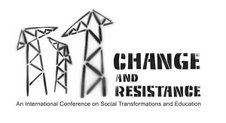Judith Bessant,
Professor Youth Studies and Sociology,
RMIT University, Melbourne.
Social movements engaged in processes social transformation encounter all kinds of impediments, from inertia through to the mobilization by groups whose interests will be affected by success on the part of those agitating for change. The movement to enhance the civic and human rights of children and young people faces in most societies special challenges given the near total exclusion of children and young people from the kinds of civic forums and resources other social movements have had available.
In this paper I consider the role of intellectual and scientific work that play a role in maintaining the subordination of young people. In ways analogous to the emancipatory struggles by women, blacks and gays, bio-medical theories and empirical research have been used to position those who will benefit from civic emancipation as ‘defective’, ‘deficient’ or ‘naturally inferior’ to those possessing civic rights and are deemed to be normal.
I pay attention to what some recent neuroscientists are doing to confirm what has long been ‘known’ about ‘the young’, namely that they are ‘troublesome’, ’rebellious’, even ‘criminally incline’ in terms of a basic proposition: their brains are different. Using neurological non-invasive scanning technology some neuroscientists now propose the ‘adolescent brain’ doesn’t complete development until humans are in their early twenties. These latest ‘facts’ are now used to ‘explain’ why young people are different enough to warrant special treatment like their exclusion from activities that mark out normal adult capacities like voting, drinking alcohol and driving.
In this paper I argue firstly why this research needs to be treated with skepticism. A critical analysis of what is problematic about this new ‘brain science’ is provided. I then situate this research in a longer history of scientism which has seen scientific research used again vulnerable groups like Afro-Americans, indigenous peoples and women. Finally I argue that why we should not fear authentic science, and why human rights advocates always need to be on guard against scientism when it is used to reinforce prejudice and ill-treatment targeting groups who lack significant civic protection of basic human rights.
Subscribe to:
Post Comments (Atom)

No comments:
Post a Comment